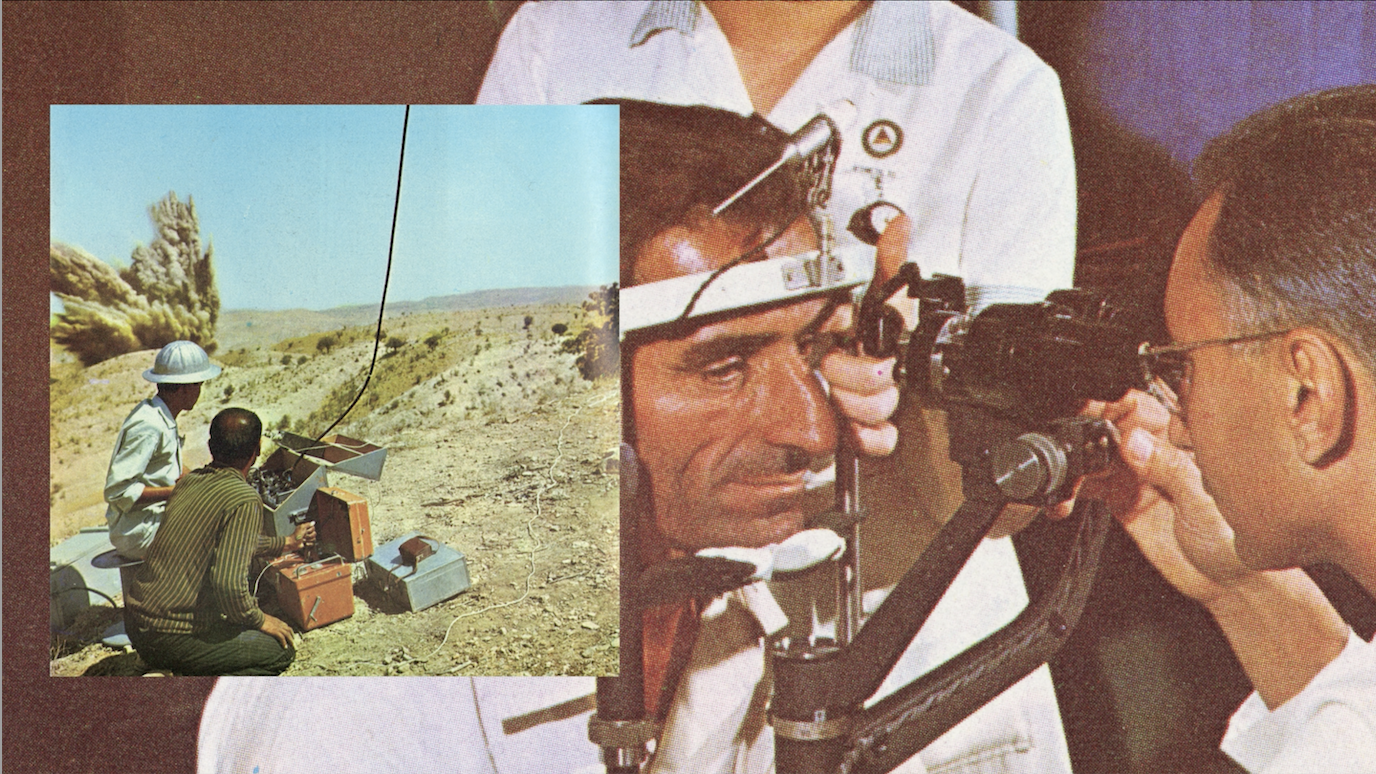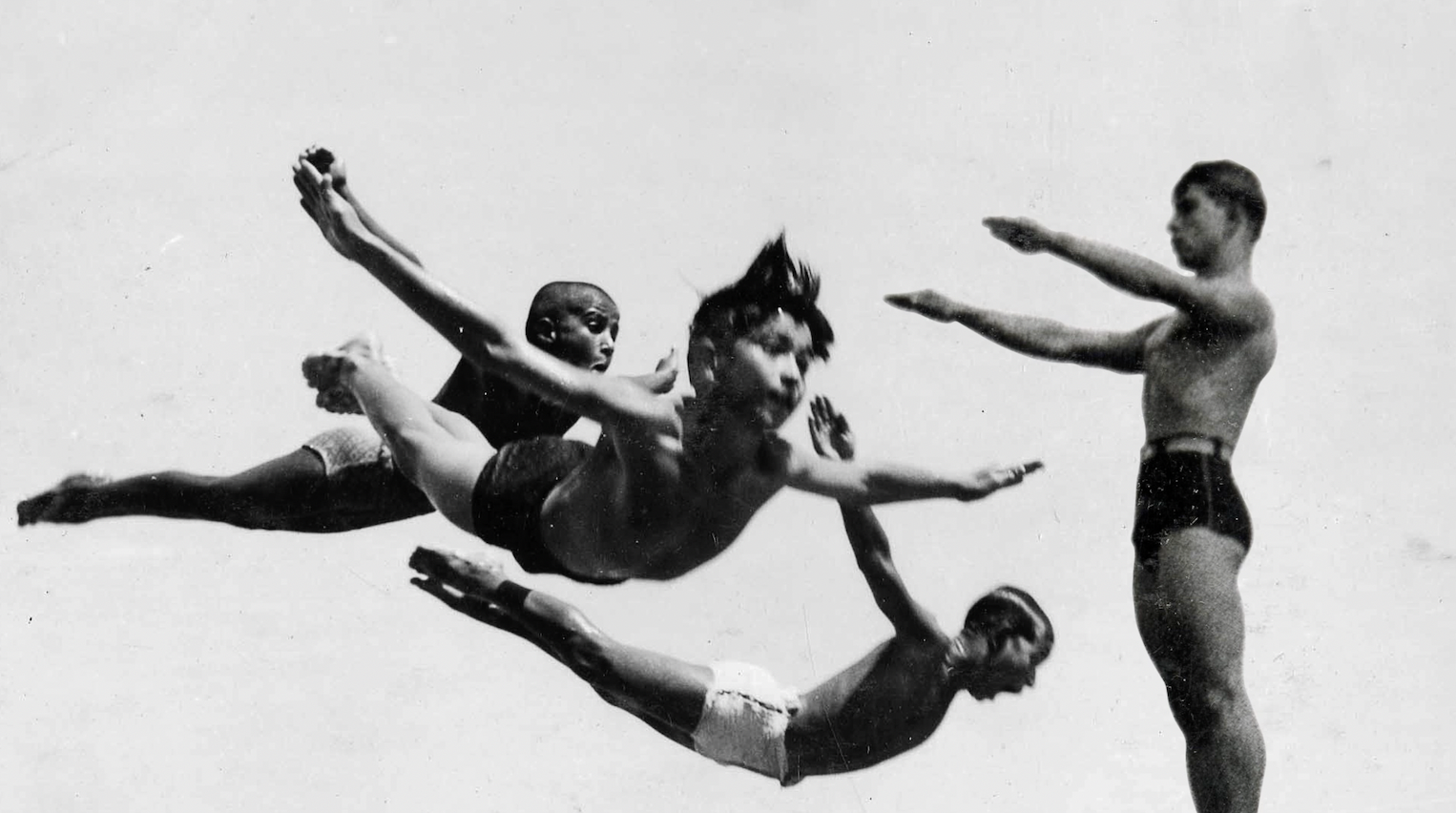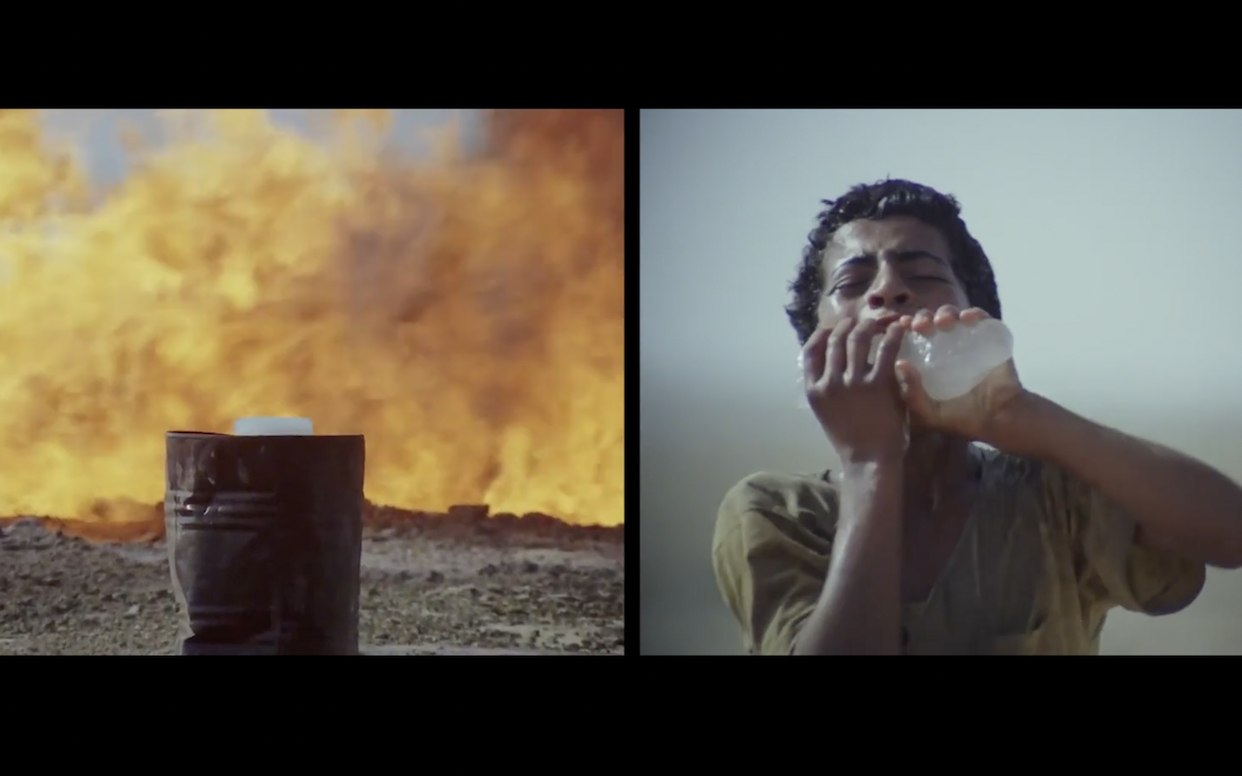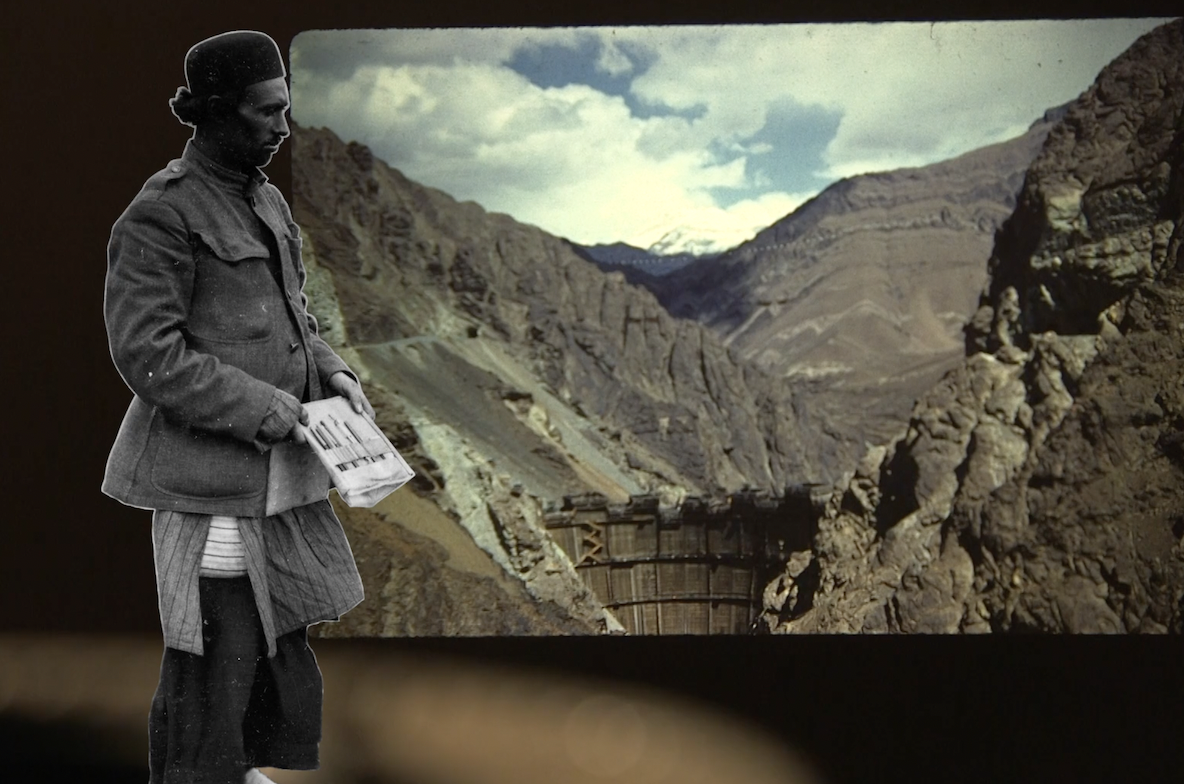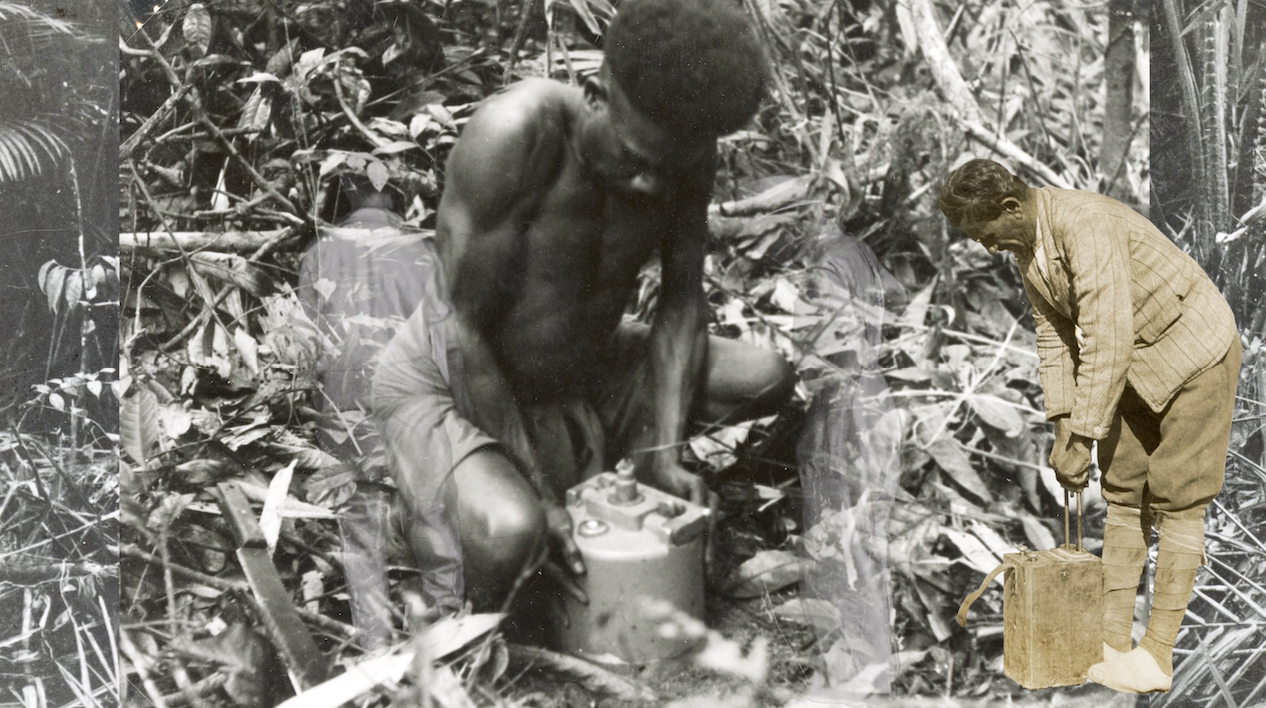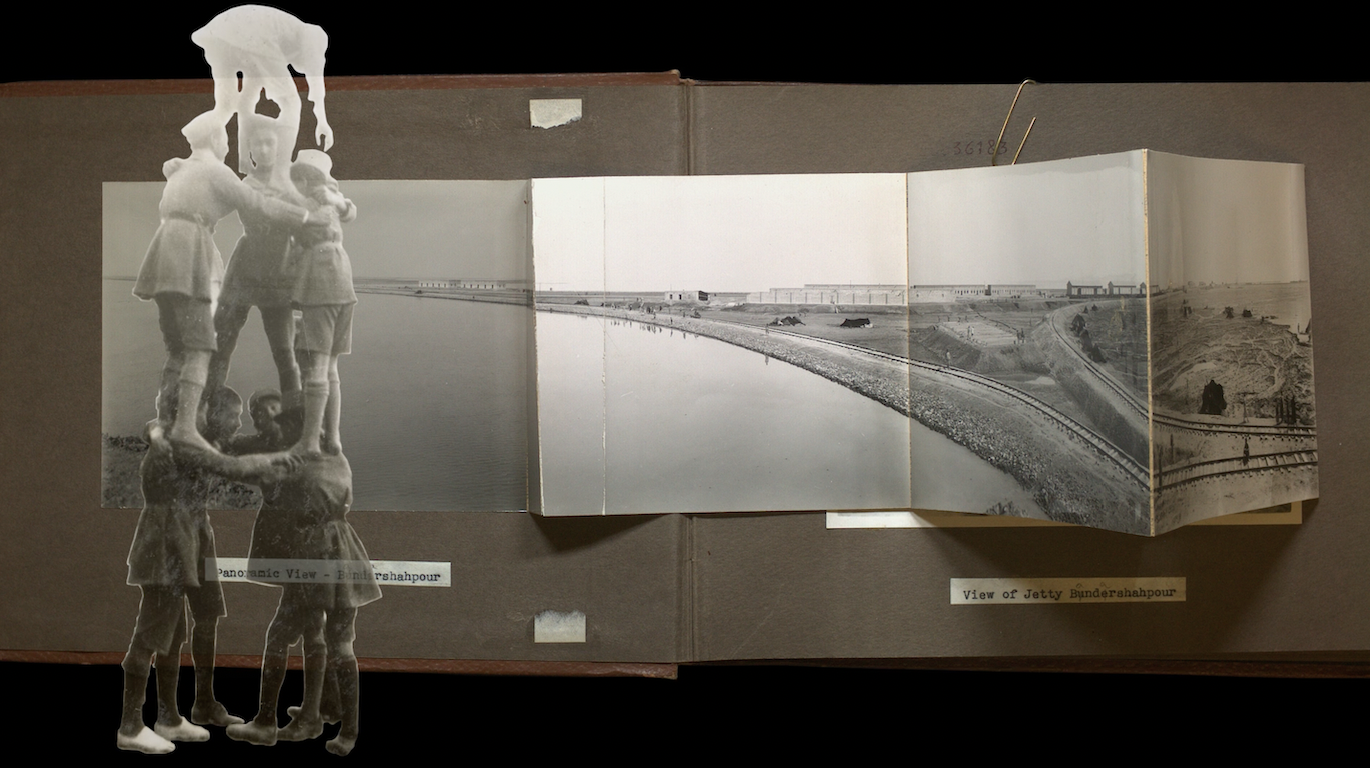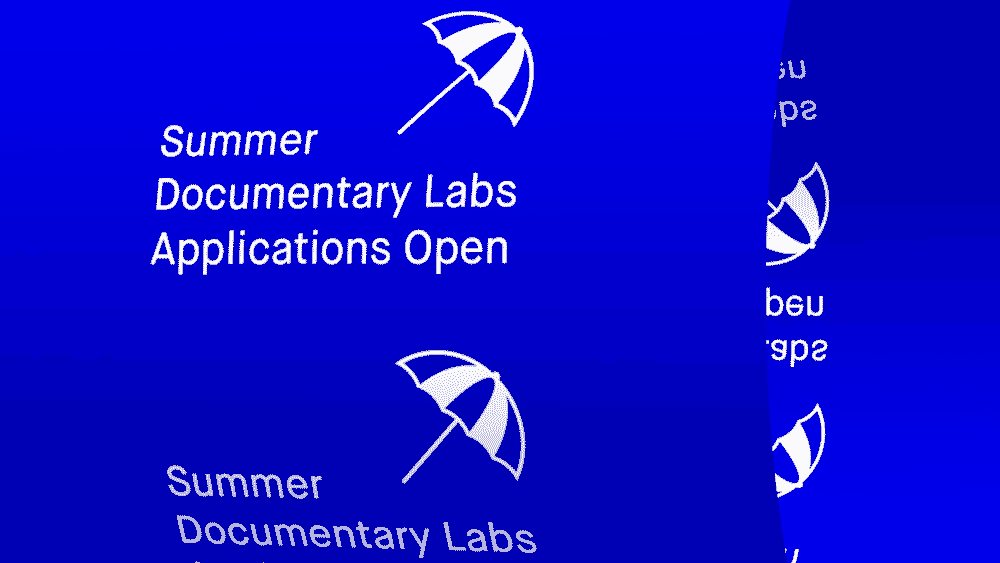
- This event has passed.
Dec 7, 2024 at 11:30 am
Artistic Differences — Sanaz Sohrabi
Our monthly cineclub and podcast, hosted in-person and virtually
11 am — IRL Doors at UNDO
11:30am — Screening begins
(in-person & online)
1pm — CineClub Conversation
(in-person & online)
LOCATIONS
ARTISTIC DIFFERENCES, produced by UnionDocs and hosted by Cíntia Gil, is an online and in-person cineclub, hosted on the first Saturday of every month! Each month, we invite you to watch a film that demands deeper discussion. It’s exactly like getting up to watch Saturday morning cartoons, but instead it’s formally rigorous documentary art, generally from an international perspective programmed by the brilliant Cintia Gil.
For our last meeting of the year, we’re delighted to spotlight the work of research-based artist Sanaz Sohrabi!
We will share two of her films One Image, Two Acts that examines the formations of early modernist infrastructures of leisure such as cinemas vis-à-vis the broader social engineering project and asymmetries of power in the oil towns of South-Western Iran. Alongside, Scenes of Extraction, that paralells production of geological and ethnographic surveys, both through amateur geological footage and official film surveys produced by BP. Situated at the nexus between science and technology studies and media archaeology, the film creates an archival constellation with previously unseen images and film footage taken during these seismographic tests.
There are two ways to join! You can join us in person in Ridgewood, or you can tune in from afar, by signing up to join our livestream. If you’re joining in person, just grab a ticket! And if you’re an UNDO Member, you can come through for free using your Member Coupon Code at checkout!
After our convening, we produce a longform interview with the filmmaker in question as a podcast episode. We bring to them the many questions, ideas and thoughts that emerge from our meeting with all of you. If this community-based generative format of dialogue and exchange piques your interest, join the club today!
Program
One Image, Two Acts by Sanaz Sohrabi
44 mins, 2020
The establishment of Iran’s petroleum industrial complex in 1908 is entangled with the formation of media and visual infrastructures which propelled and sustained new ideologies and modes of identification with the emergent colonial modernity in Iran. Between 1908-1951, the Anglo-Iranian Oil Company (AIOC) -currently British Petroleum (BP)- strategically utilized ethnographic film and photography production to promote and represent its colonial developments in Iran. Investigating the relationship between petro-modernity and photography and film as technologies of coloniality, “One Image, Two Acts” unpacks the spatial and cultural manifestation of this emergent image economy which operated in tandem with the larger petroleum complex.
With a particular focus on the historical ethnographic film and photographic surveys produced by the BP, One Image, Two Acts examines the formations of early modernist infrastructures of leisure such as cinemas vis-à-vis the broader social engineering project and asymmetries of power in the oil towns of South-Western Iran. Unraveling the social spaces of leisure in relation to industrial spaces of labor, this film connects and maps the cognitive and formal structures of modernist ideas of time, leisure, and desire during the oil company’s operations in Iran. This emergent oil encounter was not limited to the oil company’s colonial expansion; the multifaceted infrastructures of petroleum industry accumulated incrementally and temporally, produced political assets, and shaped politics along the way. This film examines the ways in which the oil company’s visual regimes of petro-modernity were reclaimed and countered by a growing anti-colonial cinema in which oil was a protagonist and cinemas had become the contested emblem of colonial development.
Reading the Iranian New Wave cinema against the backdrop of growing raw material sovereignty and nationalization movement, this film analyzes two integral films of this period, namely A Fire by Ebrahim Golestan (1961) and Amir Naderi’s The Runner (1984). It reframes oil not solely as an exchangeable commodity but rather as an archive itself; one that constitutes a web of imaginations, aspirations, and struggles. One Image, Two Acts is a coalescence of infrastructures, images, and archives of oil wherein cinematic time and geological time mobilize different sites, temporalities, and numerous material modalities.
Scenes of Extraction by Sanaz Sohrabi
43 mins, 2023
Between 1901 and 1951, the British controlled oil operations in Iran expanded their geological expeditions and geophysical methods for locating commercially viable oil reserves across its entire oil concession. “Scenes of Extraction” takes the viewer on an archival stroll into the British Petroleum Archives to unearth the still and moving images that documented this expansive colonial network of geological explorations that spanned across Iran, but also reached other British oil concessions in Papua and South East Asia. The film traces the technical and social entanglement between the infrastructures of oil and the camera during the operations of British Petroleum across the Iranian oil belt. Scenes of Extraction weaves through decades of archival documents to parse out the visual history of the “Reflection Seismography” method for oil exploration which was heavily tested across the Iranian oil belt despite its destructive and probable nature. A technical legacy that is still heavily utilized in fracking and deep-sea mining enterprises globally and is the backbone of the global energy complex.
Scenes of Extraction focuses on the parallel production of geological and ethnographic surveys, both through amateur geological footage and official film surveys produced by BP. Situated at the nexus between science and technology studies and media archaeology, the film creates an archival constellation with previously unseen images and film footage taken during these seismographic tests. Scenes of Extraction creates CGI maps and spatial renderings by inputting the early geological aerial survey photographs and panorama films taken across the Iranian oil concession in an AI software. By blending the archival and speculative modes of representing the geological past, the film reveals the gaps and discrepancies between the archival and lived histories of extraction and the ecological ruination of its aftermath. Reading the political economy of images in relation to extraction of crude oil, Scenes of Extraction evokes the history of imperial and colonial extractive industries in relation to the history of photography and archives, both as embodied technologies of extraction and dispossession in and of themselves.
Scenes of Extraction is the second episode of a trilogy of essay films that unpack the relationship between political economy of photography, archival technologies, and visual history of resource extraction in Iran. The first episode is One Image, Two Acts (2020) which has been screened in over two dozen film festivals and has won seven awards since its World premiere at Montréal International Documentary Film Festival in November 2020.
Program Duration: 87 mins
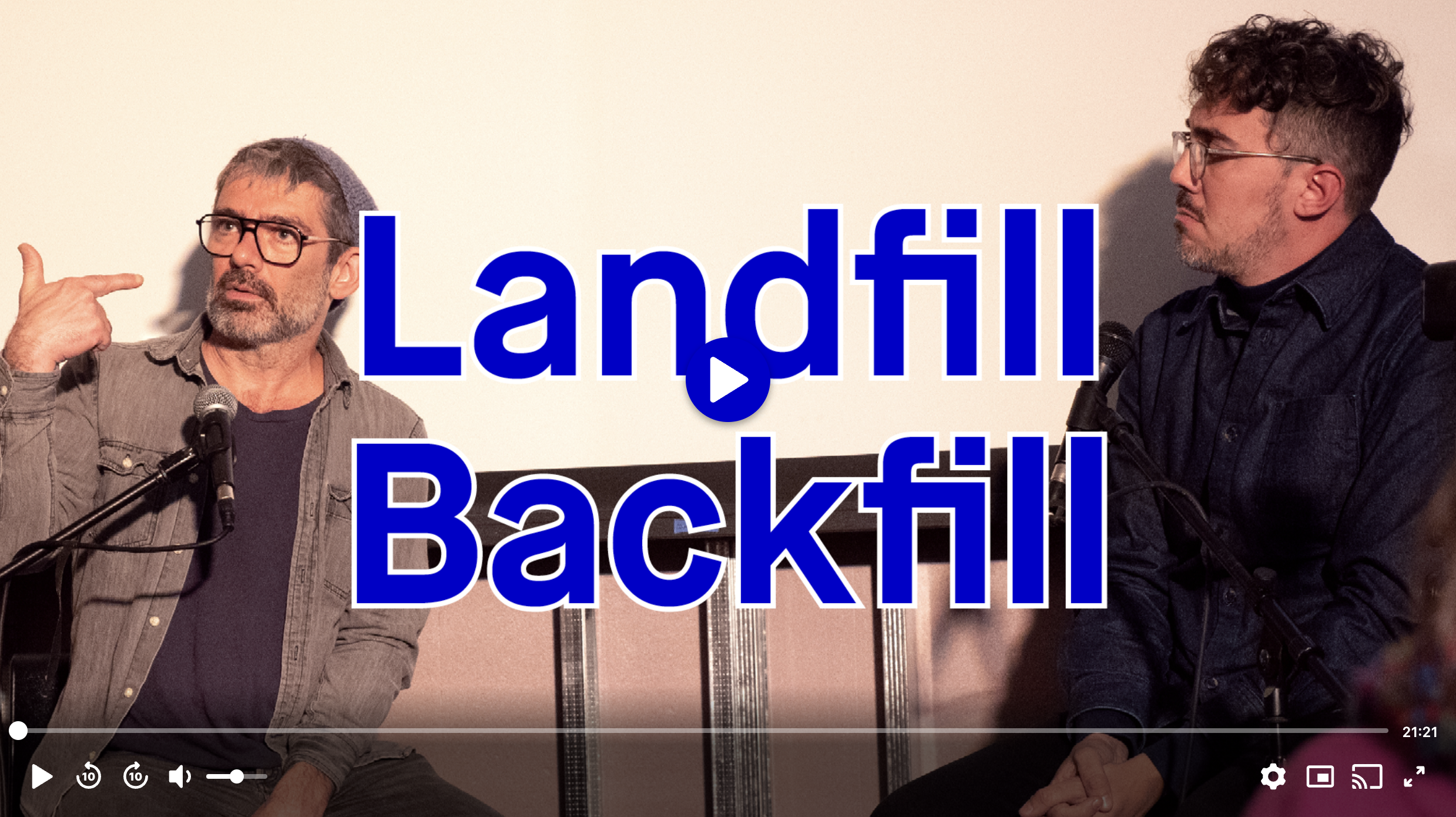
Watch the conversation between Presenter1, Presenter2 and Presenter 3 on the UnionDocs’ Membership hub.
Bios
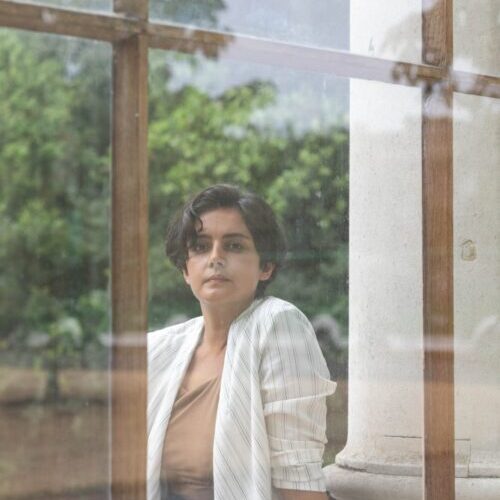
Sanaz Sohrabi (b.1988, Tehran) is a researcher of visual culture and artist-filmmaker. Sohrabi works with essay film and installation as her means of research to explore the shifting and migratory paths between still and moving images, situating a singular image in a continuum of historical relations and archival temporalities. Since 2017, Sohrabi has done extensive archival research at the British Petroleum archives to engage with the history of photography and film practices of the British controlled oil operations in Iran, conducting a visual ethnography of resource extraction in relation to the media infrastructures of BP. Sohrabi’s works have been shown widely in exhibitions and festivals. Including: Berlinale Forum Expanded, International Film Festival Rotterdam (IFFR), IndieLisboa (Silvestre Section Best Short Film), Valdivia International Film Festival Chile (Special Jury Mention), Iran Cinéma Vérité Festival (Winner of International Mid-length), Mimesis Documentary Film Festival (Best Documentary Short), Ann Arbor Film Festival (Jury Award), DocLisboa, Open City Documentary Film Festival, Montréal International Documentary Film Festival (RIDM), Sheffield Doc/Fest, Kasseler Dokfest, Videonale, VideoEX Zurich, FIDBA Argentina, among others. Sohrabi’s recent exhibitions include Ljubljana Biennial 2023, SAVVY Contemporary, Berlin, VOX Centre de l’image contemporaine, Montréal, and Carpintarias de São Lázaro, Lisbon. Sohrabi has been supported by fellowships and artist residency awards such as Skowhegan School of Painting and Sculpture and RAW Académie.
She received her BFA from University of Tehran College of Fine Arts and an MFA from the School of the Art Institute of Chicago with a merit scholarship. She holds a PhD from the Center for Interdisciplinary Studies in Society and Culture at Concordia University, Montréal. Sohrabi is an Assistant Professor in the department of Communication and Media Studies at Concordia University, Montréal where she teaches courses on political economy of images and artistic research.
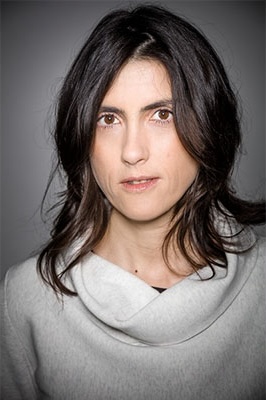
Born in Portugal, Cíntia Gil studied at the Escola Superior de Teatro e Cinema (Lisbon Theatre and Film School) and holds a degree in Philosophy from the Faculdade de Letras da Universidade do Porto (Faculty of Arts and Humanities at the University of Porto), where she has also taught seminars on aesthetics. From 2012 to 2019, Cíntia Gil served as co-director and then director of Doclisboa, Portugal’s most important and steadily expanding documentary film festival, where she launched the Ibero-American lab Arché. From 2019 to 2021 she has directed Sheffield DocFest.
From the Event

